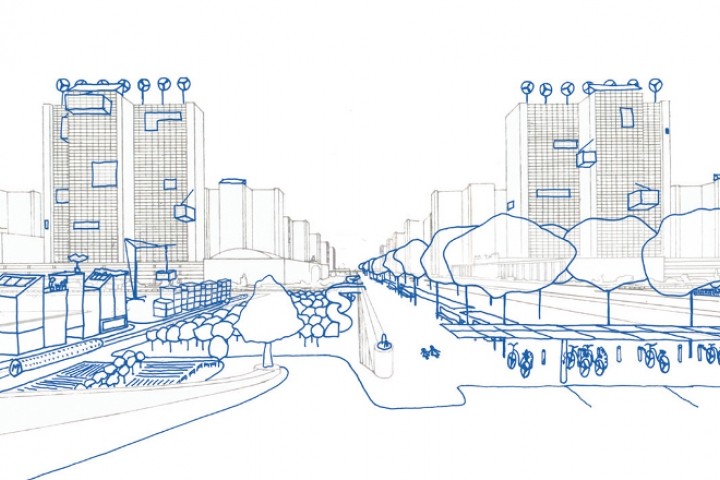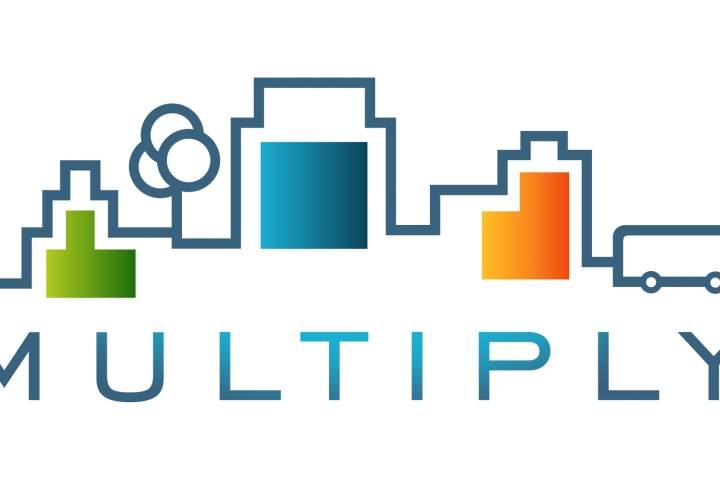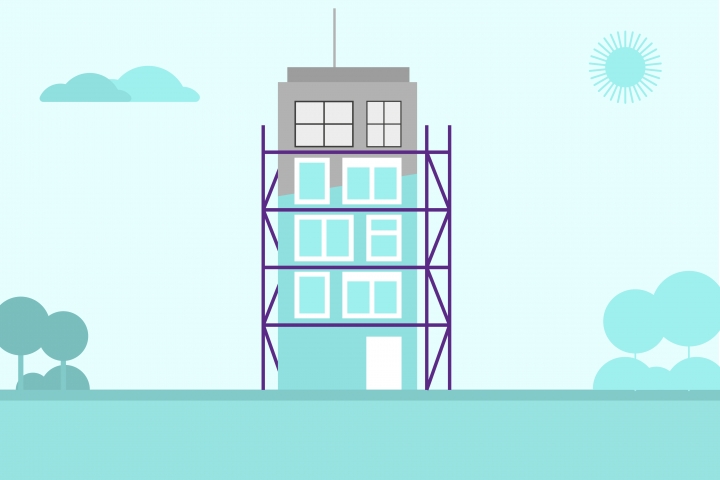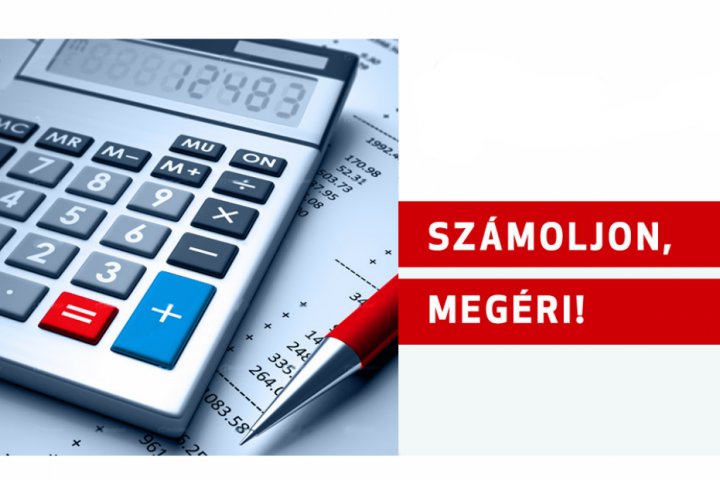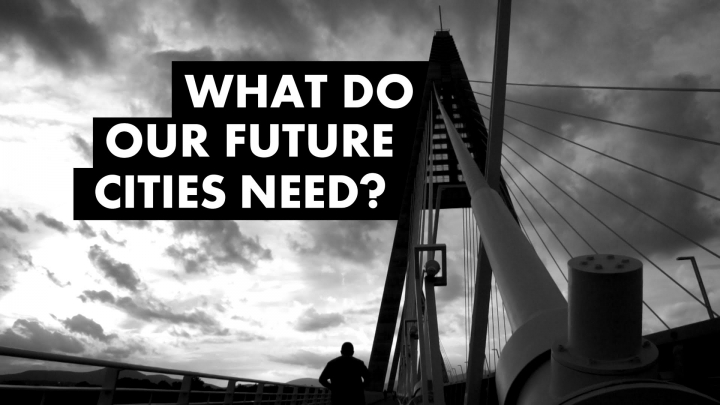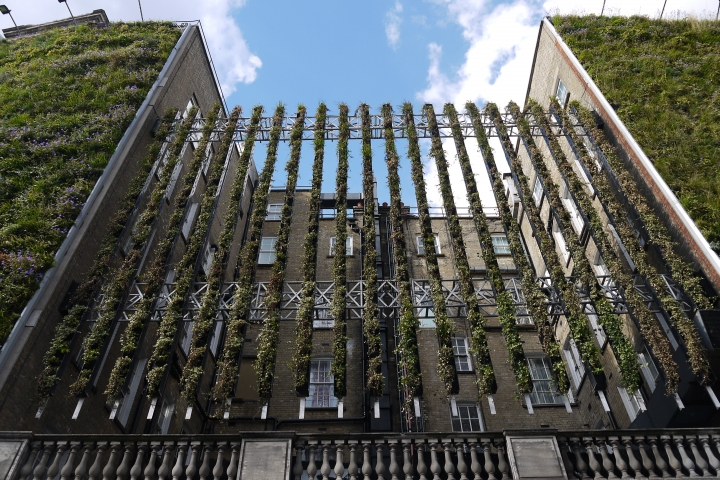MULTIPLY- Hybrid workshop with municipal planning staff
The 4th event of the 6 part peer-learning workshop series of the H2020 MULTIPLY project was organized as the 2nd event for the technical planning staff of the municipalities (the 1st one took place in Szarvas during summer). The event was held in a hybrid format (with the possibility to join online and offline) and our dutch partner facilitated a great worksop that made the event really unconventional.
The event was considered unconventional in more aspects. Firstly, it was the first event in hybrid format that was organized by Energiaklub. Zsófia Pej and Kata Győri facilitated a physical workshop in Répceszemere with personal participation of the expert team of 4 municipalities (Répceszemere, Ajka, II. district of Budapest and Sopronkövesd). Besidies the offline format, Energiaklub, in regard of the pandemic situation- also enabled the possibility to join the workshop online. Therefore other experts from Ajka and II. district, Budapest, Budaörs and XIII. district of Budapest joined the venet via Zoom, and the communication expert of Energiaklub, Anna Hornyik also provided technical assistance via the online platform. During the 2-day event, both the online and offlina participants gave presentations about their good practices in integrated urban planning, for instance: Ajka talked about hot to elaborate cooperation with neigbours citys and realize projects together, Budaörs then presented their climate protection project/initiatives that enabled them to win the Forerunner as Special Award Winner title of the MULTIPLY project. The host of the physical event, the mayor of Répceszemere, explained how to realize energy self-sufficient public buildings in a village with 300 inhabitants.
Another special element of the workshop was that one of the international partners of MULTIPLY, the Dutch PosadMaxvan and GE Energy joined the event online and the expert in integrated urban planning facilitated a 3-hour workshop for the participant on the 2nd day. Beginning with the introduction of their institut with some good practices int he Netherlends, the municipal participants were navigated to MIRO, an online workshop platform where it is possible, similarly to a personal format, to share ideas via virtual post-its. The task on MIRO was to brain-storm solution ideas to municipal challanges/goals in integrated urban planning that the technical planning experts articulated in Szarvas during their first meeting. Before the brainstorming session, all representatives of the municipalities presented in detail their main goals and challanges, then the participants were invited to propose solutions by themes. The PosadMaxvan and GE Energy divided municipalities into 3 groups as follows, depending on the problematic area where they face most challanges
- Built environment (Ajka, XIII. district)
- Mobility (Sopronkövesd, II. district, Budaörs)
- Blue and green infrastructure (Répceszemere, Szarvas)
The settlements of course face different type and scale of problems, based on their size, although the outcomes of the brainstorming session resulted in really valuable ideas to each other the ’online board’. For instance for Ajka’s goal as:
’Energy renovation of high built up housing estate buildings and its surrounding buildings and restoring its surrounding green areas, public places for being more sustainable.’
Participant came up with such ideas as
- installing PV systems to provide electricity from RE sources
- street lightning with solar energy
- municipal programme to finance energy efficiency projects
- bike tracks at public places
- renovation of green areas in Városliget
- installation of green roofs
After the workshop, PosadMaxvan and GE Energy summarized the outcomes of the municipal solutions and developed their proposal for integrated urban planning project for each municipality individually, visualized the details of their proposals on maps.
For example the proposal to Sopronkövesd suggested that in order to decrease the level of motorized traffic in the village, the establishment of Mobility HUBs, primarily for citizens, that would contain e-scooters, community bikes and cars, or e-motor scooters. That would provide transportation alternatives to citizens in the village.
ANother example from the proposed solutions is for Répceszemere, who aimed to make their public-buldings self-sufficient regarding their energy supply. The dutch institute suggested to reach the goal e.g. with passive houses, utilization of geothermal energy and heat pumps or with the heat of green-houses.
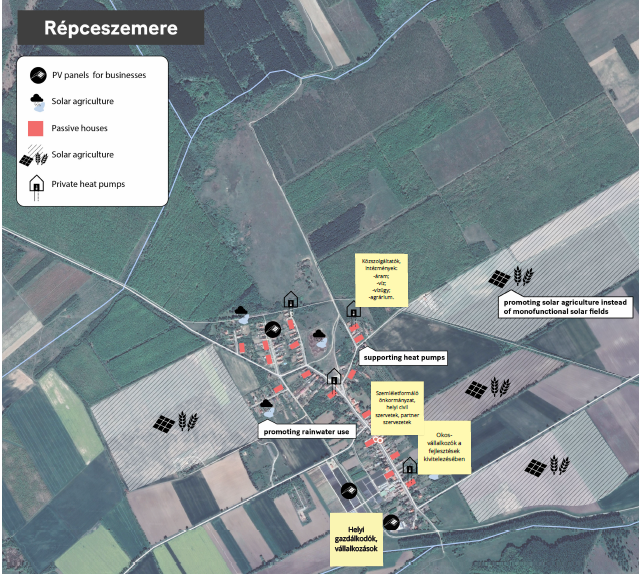
1. Figure Proposal to Répceszemere with integrated urban planning solutions
Thanks to the project, participant municipalities got the opportunity to receive technical assistance from an international institute who has long-term expertise in integrated urban planning in integrated planning that has not yet significant knowledge base nation-wide. Those municipalities, who elaborate Energy Plans within the framework of the project can use the proposal for measures to reach the CO2 reduction goals of the document, and also all administration can integrate the proposals to energy and urban planning documents/action plans such as their SECAPs, Climate Strategies or Integrated Urban Planning Strategy. The most important implication of the proposals will be if municipalities can translate them into real actions, although it will be a long-term process without doubt and will highly depend on financing opportunities of municipalities in which they have quite constrained opportunities.
